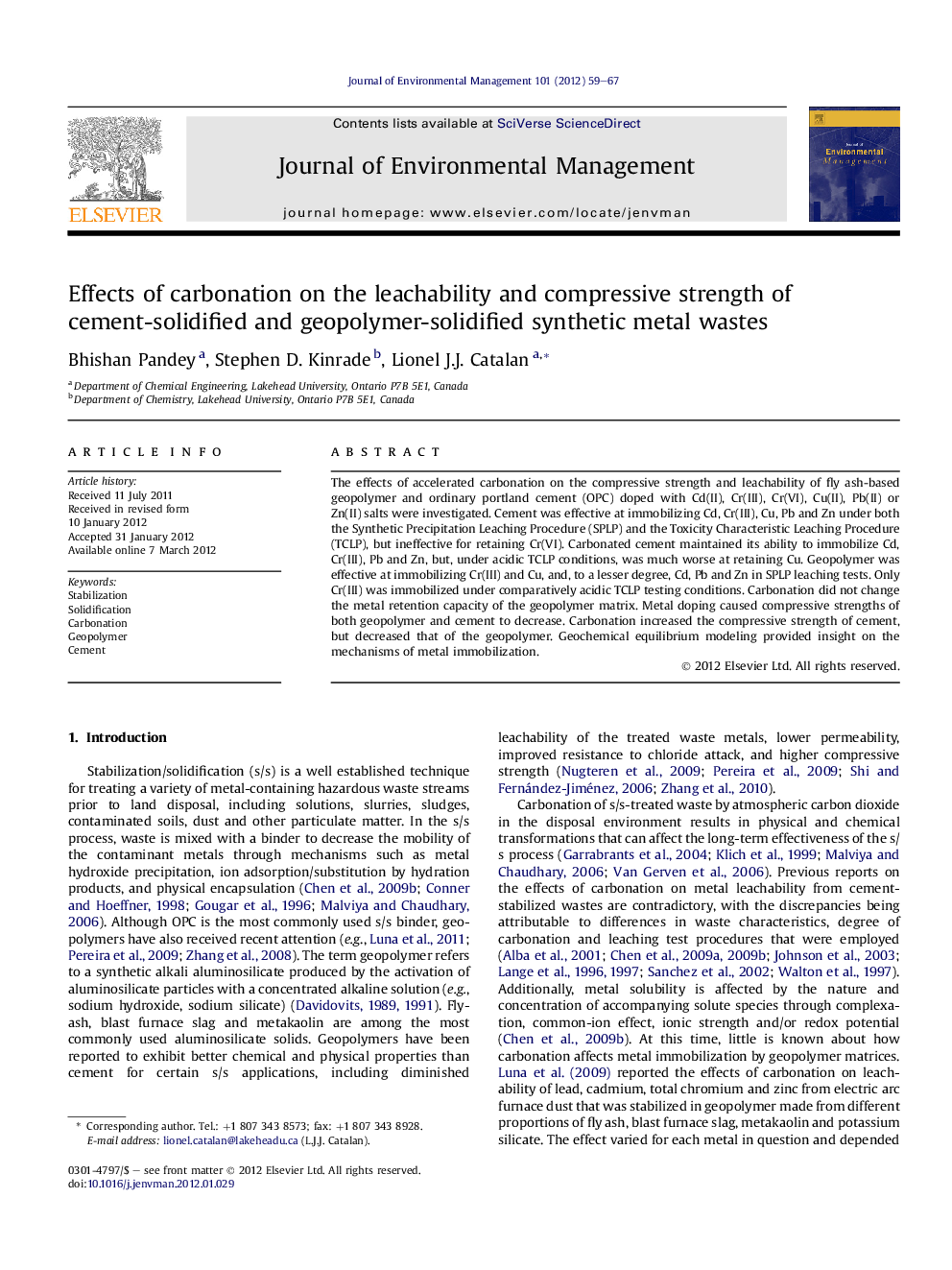| Article ID | Journal | Published Year | Pages | File Type |
|---|---|---|---|---|
| 1056836 | Journal of Environmental Management | 2012 | 9 Pages |
The effects of accelerated carbonation on the compressive strength and leachability of fly ash-based geopolymer and ordinary portland cement (OPC) doped with Cd(II), Cr(III), Cr(VI), Cu(II), Pb(II) or Zn(II) salts were investigated. Cement was effective at immobilizing Cd, Cr(III), Cu, Pb and Zn under both the Synthetic Precipitation Leaching Procedure (SPLP) and the Toxicity Characteristic Leaching Procedure (TCLP), but ineffective for retaining Cr(VI). Carbonated cement maintained its ability to immobilize Cd, Cr(III), Pb and Zn, but, under acidic TCLP conditions, was much worse at retaining Cu. Geopolymer was effective at immobilizing Cr(III) and Cu, and, to a lesser degree, Cd, Pb and Zn in SPLP leaching tests. Only Cr(III) was immobilized under comparatively acidic TCLP testing conditions. Carbonation did not change the metal retention capacity of the geopolymer matrix. Metal doping caused compressive strengths of both geopolymer and cement to decrease. Carbonation increased the compressive strength of cement, but decreased that of the geopolymer. Geochemical equilibrium modeling provided insight on the mechanisms of metal immobilization.
► Cement is effective at immobilizing Cd, Cr(III), Cu, Pb and Zn but ineffective for retaining Cr(VI). ► Carbonated cement keeps its ability to immobilize Cd, Cr(III), Pb and Zn but is worse at retaining Cu. ► Fly ash-based geopolymer is less effective than cement for immobilizing metals. ► Carbonation does not change the metal retention capacity of the geopolymer matrix. ► Carbonation increases the compressive strength of cement, but decreases that of the geopolymer.
